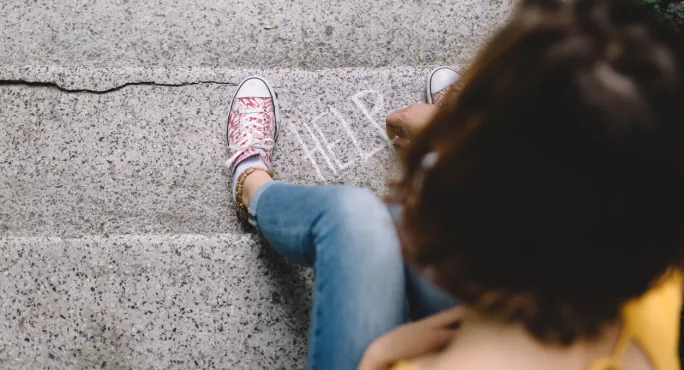A children’s charity is calling for the creation of an education “catch-up” fund for missed and disrupted learning.
Action for Children makes the call in its manifesto for the 6 May Scottish Partliament election. It also calls for all low-income students to get a home-learning device and internet provision.
The charity argues that the “digital divide was laid bare for all to see” by the pandemic - with some schools quick to get resources to pupils but others not. It says there is now “a real risk that the long-term impacts of Covid-19 will serve to further widen the poverty-related attainment gap”.
Background: Mixed report for Scotland’s Covid catch-up work
Catch-up: Why pupils need to feel safe and listened to
Education recovery: Why the ferocious resistance to the idea of ‘catch up’?
Student wellbeing: Deeply negative ‘catch-up’ rhetoric is bad for pupils
The manifesto says: “Our staff reported some schools were very proactive in their communication with pupils and parents, and with the provision of resources. Others had significantly less contact once the school buildings were shut. Action for Children provided families with digital devices as many were worried about their children falling behind with their studies. Their children did not have access to the same learning opportunities as children from well-off families.”
Covid catch-up ‘now vulnerable families’ biggest worry’
New research carried out by the charity shows that the impact of the pandemic on children’s education is now the key concern of vulnerable families.
At the beginning of the first lockdown in March 2020, the impact on education was on parents’ minds less than mental health and financial worries, with 15 per cent of the charity’s staff saying education was the main worry for families.
However, in a more recent survey of over 100 frontline Action for Children staff, carried out in February ahead of the first anniversary of lockdown, 40 per cent said the biggest worry for families was their children falling behind with their education.
A third of staff said parents did not have the ability to help their children with schoolwork - and a lack of routine and digital equipment were also identified as barriers.
According to Action for Children, a catch-up fund would help to “equalise education opportunities” and could pay for “catch-up tutoring, learning equipment and strategy toolkits, after-school and holiday clubs and positive wellbeing workshops to help learning mindsets”.
But it is still predicting that “the legacy of Covid lockdown could unleash a seismic mental health crisis for Scotland’s families and young people” and argues that prioritising children and young people’s emotional wellbeing is the best way of supporting pupils back to learning.
In primary schools, it recommends a whole-school approach and says the Roots of Empathy programme is proven and cost-effective. In secondary, it calls for investment in school counselling, “adopting a blended model of early assistance, including a cognitive behavioural therapy (CBT) approach”.
Paul Carberry, Action for Children’s director for Scotland, said: “As we approach the first anniversary of lockdown, our research shows the damaging impact these last 12 months have had on the most vulnerable in society.
“Sadly, the longer this pandemic has lasted, the more and more families who now find themselves in crisis.
“We are seeing that extreme family stress and strain is the price that children and young people are paying.”
Mr Carberry added: “Action for Children has detailed a road map for political parties to follow so they can deliver that resilience generation Scotland needs to thrive.
“The pandemic has accelerated the need to make fundamental changes. Across Scotland, many families are in crisis and, tragically, vulnerable children are paying the price.”
The charity also calls on any future Scottish government to increase the Scottish Child Payment to £20 per week.





